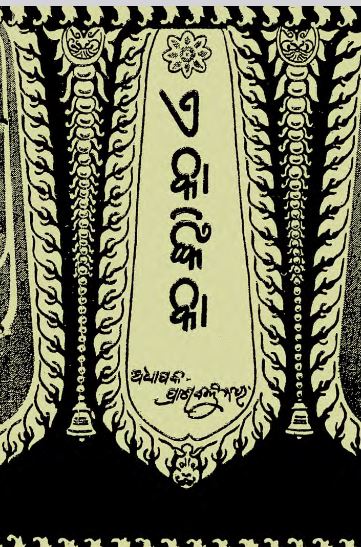Ekankika is a critically acclaimed Odia drama book written by renowned playwright Narayan Sahu. The book is a compilation of one-act dramas that explore the complexities of human relationships and the search for identity and purpose. Published in 2012, “Ekankika” is a testament to Sahu’s mastery of the Odia language and his ability to craft compelling characters and stories.
The book is a collection of six one-act dramas, each exploring a unique theme and character. The first drama, “Katha”, is a poignant exploration of the theme of love and sacrifice. The drama follows the story of a young couple who are forced to make difficult choices in order to be together.
The second drama, “Sarala”, is a powerful exploration of the theme of identity and purpose. The drama follows the story of a young woman who is struggling to find her place in the world and her sense of identity. The third drama, “Kamala”, is a thought-provoking exploration of the theme of morality and ethics. The drama follows the story of a young man who is faced with a difficult decision and must choose between his own desires and his sense of morality.
The fourth drama, “Bhagaban Sankha”, is a poignant exploration of the theme of family bonds and the importance of relationships. The drama follows the story of a father and son who are struggling to come to terms with their past and their present. The fifth drama, “Ebebi Jasma Banchichhi”, is a powerful exploration of the theme of trauma and recovery. The drama follows the story of a young woman who is struggling to come to terms with her past and her present.
The sixth and final drama, “Sambalpuri”, is a thought-provoking exploration of the theme of cultural identity and heritage. The drama follows the story of a young man who is struggling to come to terms with his cultural identity and his sense of belonging.
Throughout the book, Sahu’s writing is characterized by its simplicity, clarity, and depth. The characters are richly drawn and nuanced, with each one embodying the complexities and contradictions of human nature. The dialogue is natural and effortless, making the characters feel like real people, and the stories unfold with a sense of authenticity and urgency.
One of the standout features of “Ekankika” is its use of language. Sahu’s writing is a masterclass in the use of Odia language, with its rhythms and cadences used to convey the emotions and themes of the dramas. The language is both poetic and accessible, making the book a joy to read and perform.
The book is also notable for its exploration of themes that are relevant to Odia society, such as the importance of family bonds, the struggles of rural life, and the search for identity and purpose. Sahu’s writing is both accessible and thought-provoking, making the book a must-read for anyone interested in Odia theatre and literature.
In conclusion, Ekankika is a landmark work in Odia drama, published in 2012 by Narayan Sahu. The book is a compilation of one-act dramas that explore the complexities of human relationships and the search for identity and purpose. With its richly drawn characters, thought-provoking themes, and masterful use of language, Ekankika is a must-read for anyone interested in Odia theatre and literature.
Books Info
| Books name | Ekankika |
| Author | Pranabandhu Kar |
| No Of pages | 203 |
| Publisher | Vidyapuri |
| Publication | 1954, 1957, 2e. |
| Printed At | Printvorce |
| Distributor | NA |

